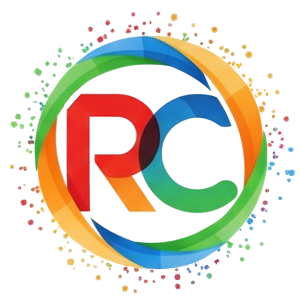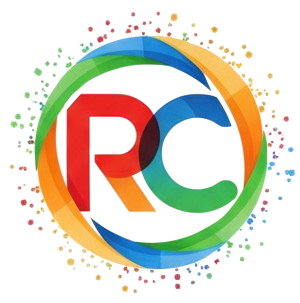The Future of Data Storage in the US: How Data Analysis and Storage Management Are Shaping Tomorrow
In recent years, clinical reference laboratories in the United States have seen a significant uptick in demand, driven by advancements in medical technology, an increasing number of diagnostic tests, and a growing healthcare infrastructure. These labs, essential for providing accurate and reliable test results, play a crucial role in diagnosing a wide range of conditions and diseases. With the healthcare industry rapidly evolving, the US Clinical Reference Laboratories market is poised for substantial growth. Let’s explore the key factors behind this expansion and what it means for the future of healthcare.
What Are Clinical Reference Laboratories?
Clinical reference laboratories are specialized facilities that perform complex medical tests and analyses for healthcare providers. These tests typically go beyond routine diagnostic procedures and may include genetic testing, microbiology, toxicology, and more. Healthcare providers rely on these labs to obtain precise results that guide treatment plans, making them indispensable in modern medicine.
Unlike standard hospital labs, clinical reference laboratories often handle large volumes of tests and specialize in offering high-level diagnostic services. These labs are integral to ensuring that patients receive accurate and timely diagnoses, which can ultimately save lives and improve the quality of care.
The Growing Need for Accurate Diagnostics
The demand for clinical reference laboratories is growing due to an increasing focus on precision medicine. As healthcare shifts towards more personalized treatments, the need for highly accurate diagnostic testing has never been greater. These advanced tests allow healthcare providers to understand the genetic makeup of diseases, identify specific pathogens, and evaluate how a patient’s body is likely to respond to various treatments.
With the rising prevalence of chronic diseases such as diabetes, heart disease, and cancer, the need for specialized diagnostic tests has surged. According to recent data, more than 6 in 10 adults in the United States have a chronic disease, many of which require ongoing monitoring and testing. Clinical reference laboratories are critical in managing these conditions, providing results that guide treatment adjustments and long-term care strategies.
The Impact of Technological Advancements
Technology plays a pivotal role in the growth of the US Clinical Reference Laboratories market. Over the past decade, advancements in laboratory equipment and testing techniques have revolutionized the industry. High-throughput sequencing, next-generation sequencing (NGS), and automation have made it possible to perform more complex tests with greater accuracy and speed.
For example, the rise of liquid biopsy tests, which detect cancer-related biomarkers in a patient’s blood, is changing the landscape of cancer diagnosis. These non-invasive tests, now commonly offered by clinical reference laboratories, allow for earlier detection of cancers that may have been difficult to diagnose in the past.
Additionally, the integration of artificial intelligence (AI) and machine learning into laboratory systems is helping labs improve diagnostic accuracy and efficiency. AI algorithms can analyze vast amounts of medical data, identify patterns, and assist lab technicians in making faster, more accurate decisions. These innovations are making it possible to deliver results more quickly, which is crucial for timely medical interventions.
Expanding Healthcare Access
Another key driver of growth in the clinical reference laboratory market is the expansion of healthcare access. As more healthcare providers and hospitals partner with clinical reference labs, the ability to offer comprehensive diagnostic testing has become more widespread. This expansion is particularly evident in rural areas, where local healthcare facilities may not have the capacity to perform specialized tests.
Telemedicine has also played a role in increasing demand for clinical reference labs. With the rise of virtual healthcare consultations, patients can now undergo diagnostic tests at home or at local clinics, with results sent directly to their healthcare provider. This ease of access is creating a more streamlined healthcare experience, improving patient satisfaction, and ultimately driving demand for laboratory services.
Key Trends Shaping the Future
Looking ahead, several trends are expected to shape the future of clinical reference laboratories in the United States:
-
Growth in Genetic Testing: As genomic research progresses, genetic testing is becoming an increasingly important tool in diagnosing and treating diseases. The need for specialized reference laboratories to handle these complex tests will continue to rise.
-
Expanding In-House Testing: More healthcare providers are bringing diagnostic testing in-house to provide quicker results. However, for highly specialized tests, clinical reference laboratories will remain essential.
-
Rising Demand for Infectious Disease Testing: The ongoing global health challenges, including the COVID-19 pandemic, have underscored the importance of infectious disease testing. Clinical reference labs are expected to play a central role in the future management of infectious diseases through faster, more accurate testing methods.
-
Integration of AI and Automation: With the continued adoption of AI and automation, the efficiency and accuracy of clinical reference laboratories are expected to improve, reducing human error and increasing turnaround times.
Conclusion
The US Clinical Reference Laboratories market is on an upward trajectory, driven by a combination of technological innovations, rising demand for precision medicine, and a more connected healthcare infrastructure. As the healthcare industry evolves, clinical reference laboratories will continue to play a crucial role in ensuring that patients receive the highest quality diagnostic care.
In the coming years, the market for clinical reference laboratories will expand even further, driven by both technological advancements and a growing need for specialized testing. This will not only improve healthcare outcomes but also enhance the efficiency of diagnostic testing across the country, paving the way for more personalized and effective treatments.





